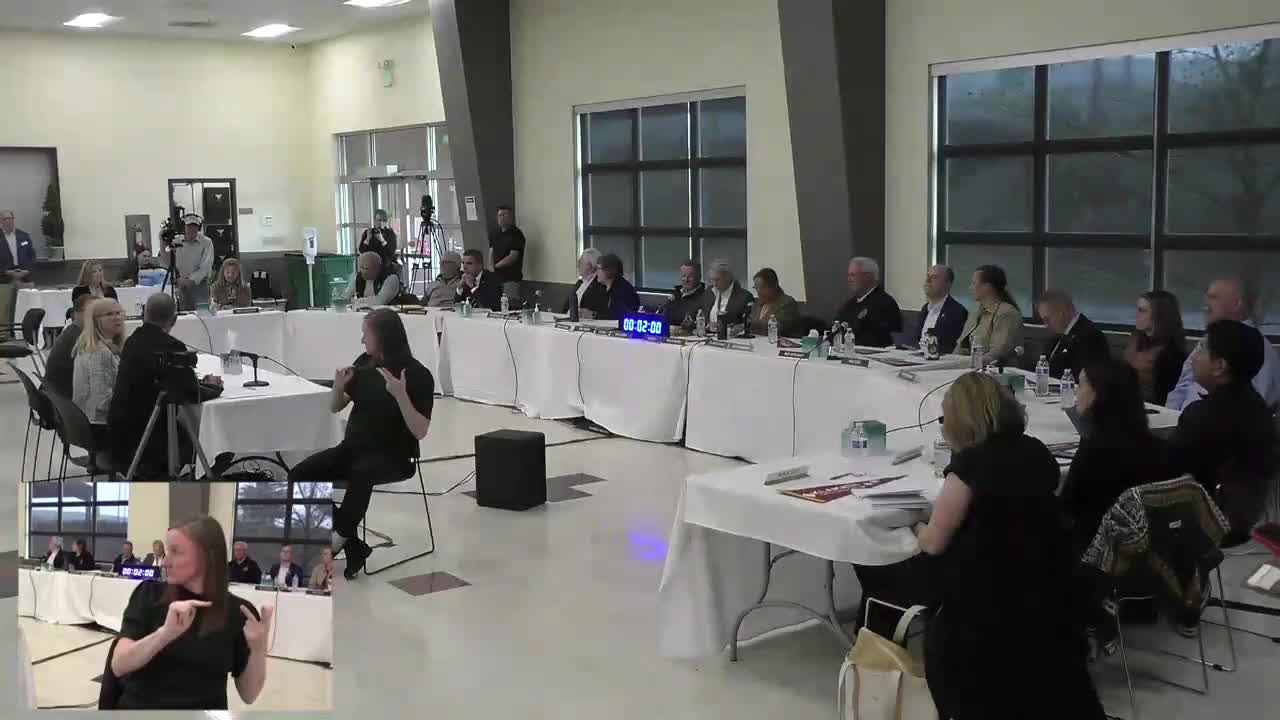Klamath region leaders ask state for multimillion‑dollar water and wastewater grants
Get AI-powered insights, summaries, and transcripts
Subscribe
Summary
Multiple Klamath Basin jurisdictions, including South Suburban Sanitation District, Crescent Sanitary District and the City of Shady Cove, asked Ways and Means for state aid to comply with permits, replace failing wells and avoid large rate hikes.
John Ball, mayor of Shady Cove, and Council President Kathy Nuckols told the committee the city faces a municipal water crisis and asked for $5,000,000 with a $3,000,000 city match to establish a distribution framework to bring reliable municipal water to residents dependent on private wells. Ball said one community well that served 28 homes fell from 85 gallons per minute to 11, and another community of 16 homes had a well contaminated with arsenic.
Kenneth Decranz, director for South Suburban Sanitary District, said the district serves roughly 23,000 residents and must upgrade its lagoon wastewater treatment plant to meet new NPDES permit requirements. Decranz said engineers estimated the project at about $60,000,000 and requested $20,000,000 in state support to avoid steep rate increases in a disadvantaged community. Michael Koger and Joe Spindellini, South Suburban leaders, described an iterative design process and value engineering that reduced a prior estimate near $97,000,000 to about $60,000,000 after eliminating biosolids processing and other redesigns.
Jim Simmons, president of the Crescent Sanitary District board, said Crescent is over $6,000,000 in debt, has defaulted on two loans, and asked the committee for $4,000,000 to address system repairs and the needs of nearby Gilchrist, where terracotta pipes from 1939 require evaluation and replacement.
Abby McClung, president of the Klamath Falls City Council, told the committee her city's wastewater plant needs upgrades to meet state and federal water quality standards and described the potential impact on households: without state support, she said, sewer rates could nearly double from $55 to $95 per month. McClung provided pollutant reduction estimates tied to the planned upgrades, telling the committee the project would remove more than 15,000 pounds of nitrogen and 22,000 pounds of phosphorus annually and significantly reduce thermal load aligned with U.S. Fish and Wildlife Service goals.
Speakers asked for targeted state grants and loans to prevent rate shocks for residents in economically distressed areas and to ensure compliance with state permits. The committee received written testimony as well; no formal appropriation action was taken at the hearing.
Ending: Multiple Klamath Basin utilities and municipalities requested state support—$20 million for South Suburban Sanitary District, $4 million for Crescent Sanitary District, and $5 million for Shady Cove (with a $3 million match)—to fund required upgrades, avoid large user rate increases, and address public health risks from failing water supplies.
